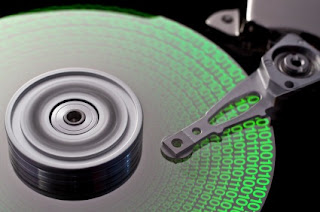
If your clever and swift computer is turning sluggish and freezes when you have few applications running then it is time for you to get your hard drive reorganized. In fact, even if your computer is new or doesn’t show any such signs of languor, you should still learn techniques to save your hard drive’s space, so that your computer remains clean and stay healthy for long. Before you start up with the cleaning process you should take a look at the current status of the space available in your computer. This will make you aware of how stuffed your computer is and how much optimization your computer need.
To check the status of your computer’s hard drive,
- Double Click on the icon of “My Computer”
- Right Click on “C: Drive” and
- Select “Properties” option from the menu
In the “General” tab of Properties Window, you will see a pie chart, describing you the status of your hard drive. If your computer’s used space is more than the free space available, it is time for you to go for a cleanup.
Run Disk Cleanup:In the Properties window, where you checked the status of your computer’s hard drive, you will find and option of “Disk Cleanup” in the “General”. Hit on the Disk Cleanup button to run a scan, which will give you a list of all the files that can be deleted without any risk on your computer system. This list includes: Temporary files, Cookies, Recycle Bin, etc. click on each file to see a small description about what it does. If it says that it is completely save to remove, then check the checkbox and press delete. Once deleted, these files will not be available anymore.
Defragmentation:In the “Tool tab” of the “Properties” dialog box, you will find a “Defrag Now” button. After clicking this button, your computer will analyze your computer’s hard drive space and it will let you know whether you should defrag your computer or not. If it does recommend to defrag, then go ahead with the process. Defragmentation does not delete any file from your computer. It simply rearrange the files and maximize the information.
Let go of Unused Programs:Your computer must have several old programs that you don’t use anymore. Before letting go of these applications, you need to let go of the idea that you might need it someday. Of will do happen to need it one fine day, then reinstalling it is no big deal. Go to “Control Panel” and open “Add and Remove Programs” folder. The list of all currently installed applications will be displayed to you. You can delete any application from here. Go ahead and delete any application, which is not of use anymore. Other than this, if you have the habit of saving same file at more than one place, then you also need to look for all those duplicate files and delete extra copies of each file.
Invest on External Hard drives:External hard drive is a great resource for any and every one. It is in fact, the best way to keep your data safe and your computer light at the same time. Instead of keeping all the files in your computer, you can use an external drive to keep your data. This will also work as a backup in case of any mishap plus it will also save a lot of your computer’s space.
Zip it!:Zipping your files mean compressing it into a very small file. There are software available to compression your file. A compressed file takes a lot less space than a usual file and it can be easily extracted whenever you want. One such utility software to compress files is “WinZip”. This available in free as well as paid version, but the free version works perfect, so you would never really need to pay for its full version.
Nice post with awesome points! Can’t wait for the next one.
ReplyDeleteAcer - 11.6" Aspire Notebook - 4 GB Memory - 500 GB Hard Drive (V5-121-C74G50nkk)
Acer - 15.6" Aspire Notebook - 4 GB Memory - 500 GB Hard Drive